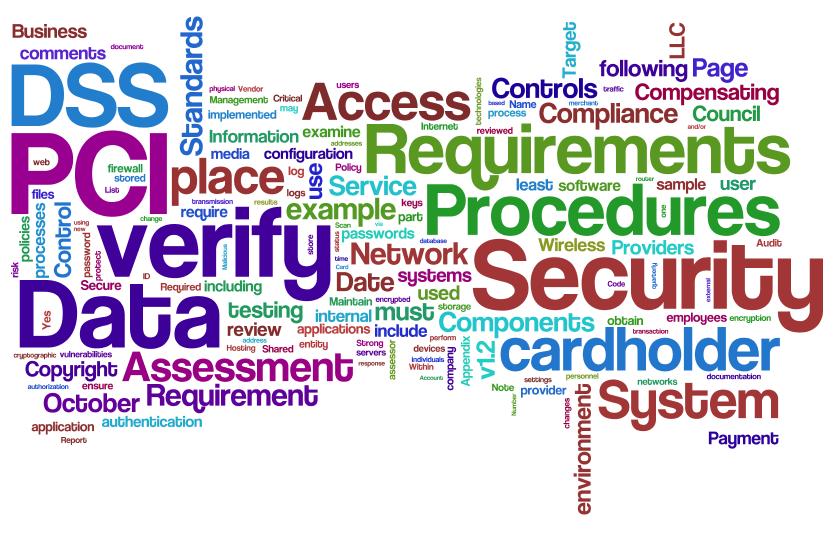
September 21st, 2016 by Elma Jane
PCI compliance applies to any company, organization or merchant of any size or transaction volume that either accepts, stores or transmits cardholder data.
Any merchant accepting payments directly from the customer via credit or debit card must be Compliant. The merchant themselves are therefore responsible for becoming Compliant, as the deadline for the merchant becomes overdue.
Understanding and knowing the details of Payment Card Industry Compliance can help you better prepare your business. Because failing and waiting to become compliant or ignoring them, could end up being an expensive mistake.
The VISA regulations have to adhere to the PCI standard forms as part of the operating regulations. The regulations signed when you open an account at the bank. The rules under which merchants are allowed to operate merchant accounts.
The Payment Card Industry Data Security Standard (PCI DSS) is a proprietary information security standard for organizations that handle branded credit cards from the major card schemes including Visa, MasterCard, American Express, Discover, and JCB.
Posted in Best Practices for Merchants, Credit Card Security, Payment Card Industry PCI Security, Visa MasterCard American Express Tagged with: American Express, cardholder, compliance, credit, customer, data, debit card, Discover, jcb, MasterCard, merchant, Payment Card Industry, payments, PCI, transaction, visa
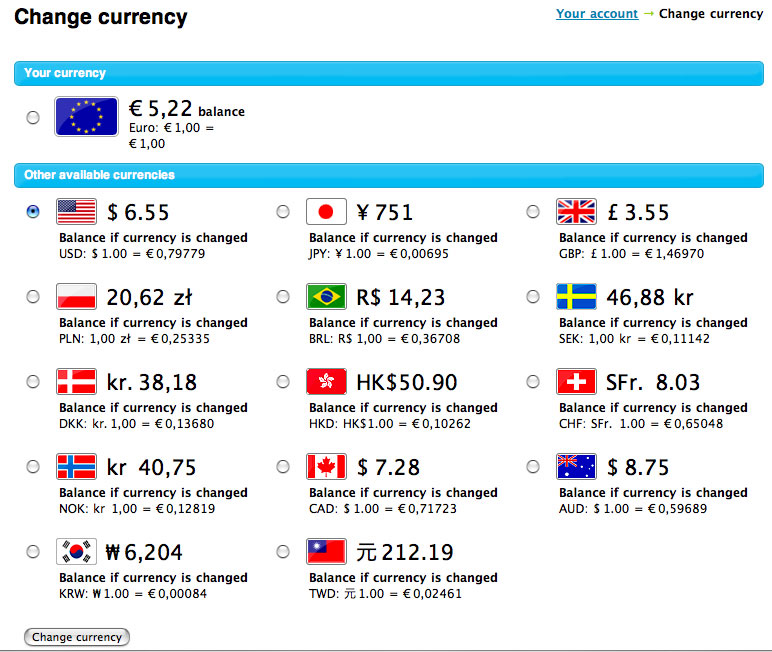
September 9th, 2016 by Elma Jane
Multi Currency Conversion (MCC):
- In addition to 100+ supported currencies and all transactions autosettle at 6pm (eastern) daily.
- Customer is unaware of the converted currency, also customer may not opt-out at the point of sale.
- Conversion occurs between the point of sale and settlement.
- E-commerce only and no merchant rebate.
- Price listed in customer’s currency conversion also Supported by Internet Secure or direct certification.
Dynamic Currency Conversion (DCC):
- Customer is aware of the Conversion Currency, also customer may opt-out at the point of sale.
- Conversion occurs at the point of sale and five supported currencies less than MCC.
- Merchants may choose settlement method and time in addition to merchant rebate up to 100bp.
- Price listed in merchant’s currency conversion.
- For Retail, Restaurant, MOTO and E-commerce.
- Supported by terminals, via Warp and Virtual Merchant.
For more information give us a call at 888-996-2273 or visit our website: www.nationaltransaction.com
Posted in Best Practices for Merchants, e-commerce & m-commerce, Mail Order Telephone Order Tagged with: customer, e-commerce, merchant, moto, Multi Currency Conversion, point of sale, terminals, transactions, virtual merchant

August 11th, 2016 by Elma Jane
CURRENCY CONVERSION
Multi Currency Conversion (MCC):
In addition to 100+ supported currencies and all transactions autosettle at 6pm (eastern) daily.
Customer is unaware of the converted currency, also customer may not opt-out at the point of sale.
Conversion occurs between the point of sale and settlement.
E-commerce only and no merchant rebate.
Price listed in customer’s currency conversion also Supported by Internet Secure or direct certification.
Dynamic Currency Conversion (DCC): Customer is aware of the Conversion Currency, also customer may opt-out at the point of sale.
Conversion occurs at the point of sale and five supported currencies less than MCC.
Merchants may choose settlement method and time in addition to merchant rebate up to 100bp.
Price listed in merchant’s currency conversion.
For Retail, Restaurant, MOTO and E-commerce.
Supported by terminals, via Warp and Virtual Merchant.
Posted in Best Practices for Merchants, e-commerce & m-commerce, Mail Order Telephone Order, Point of Sale Tagged with: currency, customer, DCC, Dynamic Currency Conversion, e-commerce, Internet Secure, MCC, merchant, moto, Multi Currency Conversion, point of sale, retail, terminals, transactions, virtual merchant
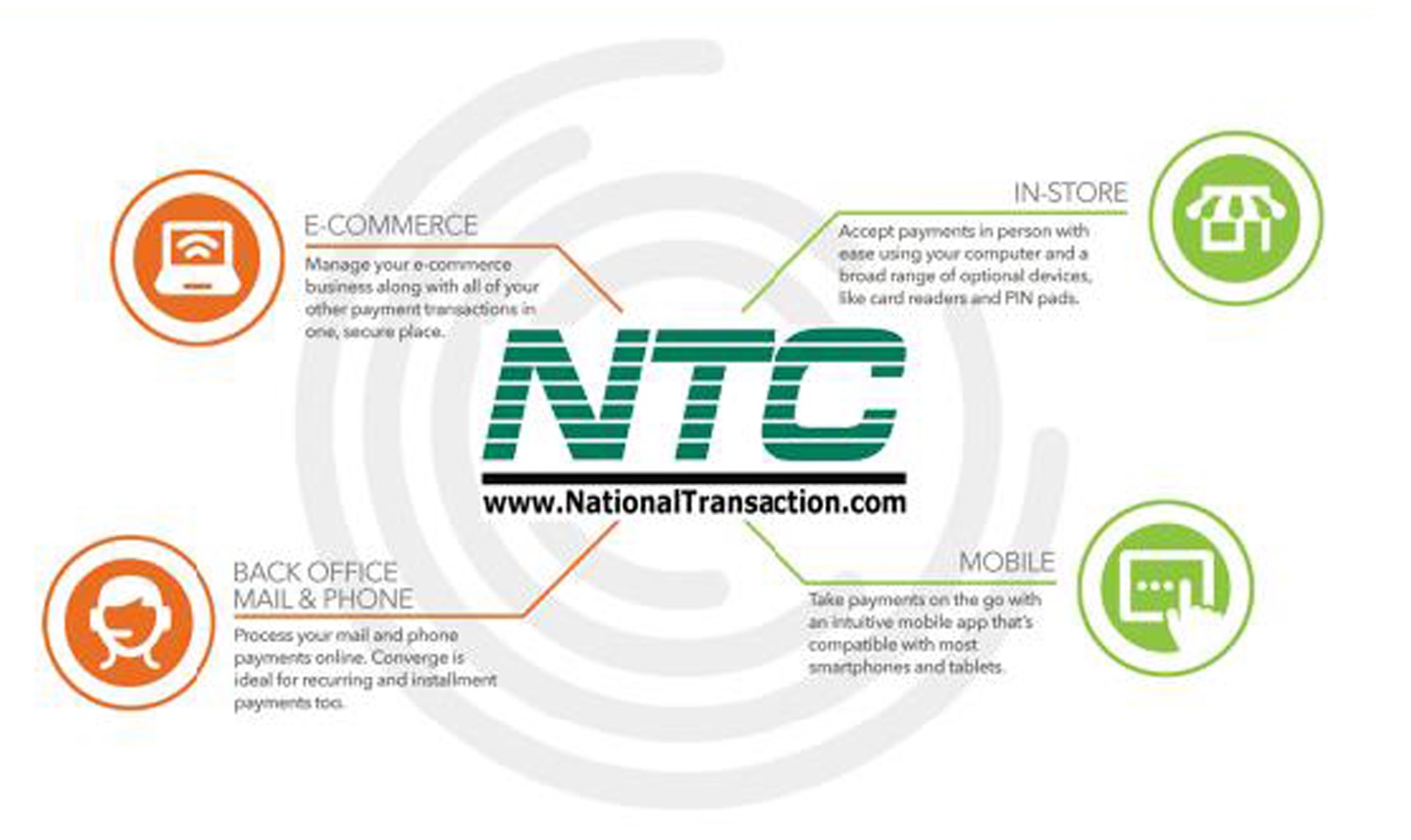
August 3rd, 2016 by Elma Jane
National Transaction offer valuable features and benefits. If you want to improve your business’s productivity, you should look for this features that you need from your merchant account provider.
Advanced Security Options – did you know that 6 out of 10 small businesses close within six months of a card data breach? Point-of-Sale devices should have appropriate security measures, particularly EMV, encryption and tokenization. With National Transaction we have Safe-T for Small and Medium Businesses and Safe-T for Large Businesses. Top-tier security is important on all your business’s data especially customer information, consider adding additional authentication procedures. Merchant account providers bundle various security features to make the process of becoming secure.
Fast Payment Processing – having up-to-date technology is the first step because some customers might become annoyed by slow service and leave. The sooner you have the money processed by your merchant account provider, the bigger and stronger your business can become. NTC is adept at administering payments quickly and efficiently. We can provide regular funding or next day funding.
Feature Flexibility – Look for a merchant provider that appropriately addresses your payment concerns. Obtaining the features you need from your merchant services provider is very important.
Mobile Payment Processing – NTC offer Virtual Merchant/Converge Mobile that gives you the ability to accept payments using your smartphone or tablet anywhere you go. The app works with most Apple and Android mobile devices. You can accept key-entered transactions or swipe cards using an encryption reader. You can now take chip card payments using Ingenico iCMP PIN Pad. Merchants who aren’t mobile payment capable do demonstrate unwillingness to progress with payment technology and might lose customers eventually.
Reliable Customer Support – NTC is available 24/7 answering the phone by humans and not automated systems. You got support with your hardware, answer questions and guide you to better understand the process. Customer support is perhaps the most important feature of any business partnership you make. You don’t want to choose the wrong provider.
Up-to-Date Tech – futuristic features, like mobile payment abilities, EMV/NFC, contactless payments are worth investing. Modern consumers are generally more familiar with up-to-date payment systems. Seeing a merchant service provider offer a swipe-only terminal should be a red flag, because the recent regulations require merchants to have EMV to provide better data security.
Posted in Best Practices for Merchants, EMV EuroPay MasterCard Visa, Financial Services, Merchant Account Services News Articles, Merchant Services Account, Mobile Payments, Mobile Point of Sale, Small Business Improvement, Travel Agency Agents Tagged with: account, Breach, card data, chip card, customer, EMV, encryption, merchant, mobile, payment, point of sale, provider, Security, tokenization, transactions
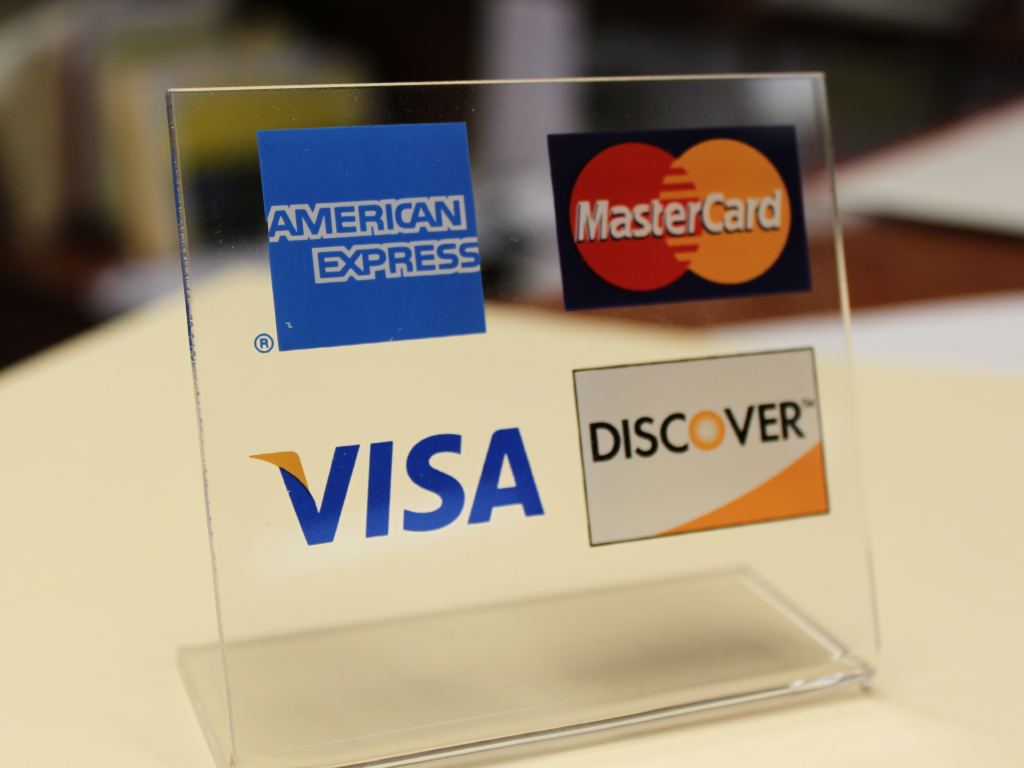
July 21st, 2016 by Elma Jane
Always ask for the card security codes:
CVV2 for Visa
CVC2 for MasterCard
CID for Discover and American Express.
Always use the Address Verification Service (AVS) and only process sales after receiving a positive AVS response.
Avoid using voice authorizations, unless absolutely necessary.
Billing descriptor must set up properly and shows your phone number. Customer can contact you directly if there is an issue,
Consider using the associations’ 3-D secure services:
Verified By Visa
SecureCode by MasterCard
A 3-D transaction confirmation proves card ownership and protects you from certain types of chargeback. An additional layer of security for online credit and debit card transactions.
Inform your customers by email when a refund has been issued or a membership service cancelled. Notify them of the date the refund was processed and provide a reference number.
Make available customer support phone number and email address on your website so that customers can contact you directly. You need to meet this requirement before opening a merchant account.
Make it easy for your customers to discontinue a recurring plan, membership or subscription. Have a no-questions-asked policy.
Notify your customers by email of each transaction and indicate that their cards will be charged.
Obtain a confirmation of delivery for each shipment.
Process refunds as quickly as possible.
Secure an authorization approval for every transaction.
Secure customers’ written or electronic signatures, for recurring payments or monthly fees. Giving you express permission to charge their cards on a regular basis.
Terms and conditions must be clearly stated on your website. Customers must acknowledge acceptance by clicking on an Agree or a similar affirmative button.
Transaction amount must never exceed the authorized amount.
You are required to reauthorize the transaction before settling it if an authorization approval is more than seven days old.
Posted in Best Practices for Merchants, Credit card Processing, Credit Card Security, Merchant Services Account Tagged with: card, chargeback, credit, customer, debit, merchant, merchant account, online, sales, Security, service, transaction
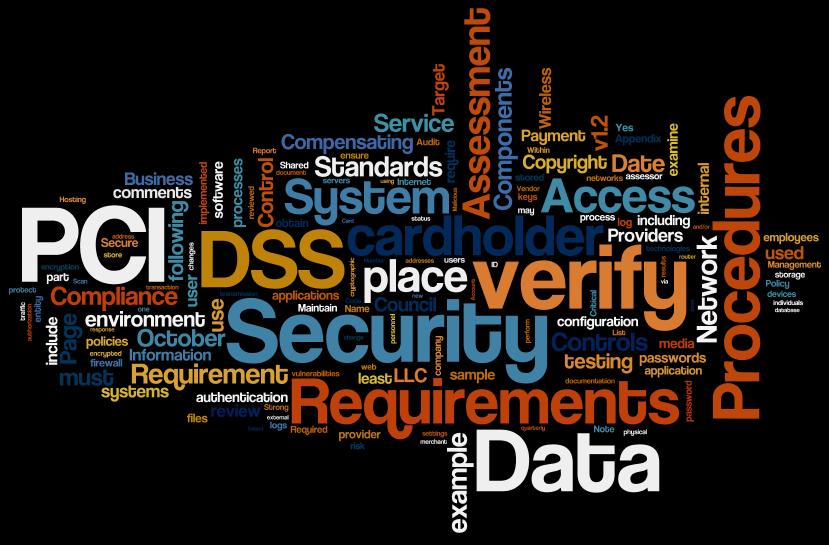
July 14th, 2016 by Elma Jane
PCI Compliance applies to every merchant who is accepting credit cards large or small. Refusing or delaying to become PCI Compliant can end up being a costly mistake.
If you accept any credit or debit card payment, you need to be PCI Compliant no matter the volume is.
PCI applies to any company, organization or merchant of any size or transaction volume that accepts, stores or transmits cardholder data. Any merchant accepting payments directly from the customer via credit or debit card must be PCI Compliant.
The merchant themselves are responsible for becoming PCI Compliant, as the deadline for merchants to become Compliant is long overdue
Understanding and knowing the details of PCI Compliance can help you better prepare your business. Failing and waiting to become compliant or ignoring them, could end up being an expensive mistake.
The VISA regulations have to adhere to the PCI standard forms part of the operating regulations, the regulations signed when you open an account at the bank. The rules under which merchants are allowed to operate merchant accounts.
Posted in Best Practices for Merchants, Travel Agency Agents Tagged with: cardholder, credit cards, customer, data, debit card, merchant, payment, PCI Compliance, transaction

July 5th, 2016 by Elma Jane
With the ever growing number of financial crimes occurring within the payments industry, initiatives to identify patterns of possible suspicious behavior has been enhanced. The Loss Prevention team recently put into place a new procedure for collecting information pertaining to the Anti-Money Laundering requirements of “Customer Due Diligence” (CDD) and “Customer Identification Program” (CIP).
If a merchant reaches their Processing Limit (Soft Cap), or they request a change to their MCC/SIC, Loss Prevention is required to obtain and validate CDD and CIP information prior to making updates to the account. Loss Prevention representatives will reach out to the customer’s Merchant Service provider (MSP) office first, in an effort to effectively obtain the information without causing potential alarm to the customer.
Thank you for being a partner with NTC, and helping to prevent financial crimes in our industry.
Posted in Best Practices for Merchants Tagged with: customer, financial, merchant, payments, payments industry, service provider

June 30th, 2016 by Elma Jane
Let’s face it, it’s hard to build a customer email list if you continue getting declined. There’s a way for a customer to say YES!
Get Exclusive – let your customers know that you treat your email list to exclusive offers and information. Offering a special email customer only discount code or exclusive benefits to members on your email list.
Make it Creative – whether you’re collecting emails online or at the checkout counter, make it creative. Getting creative with how you sell your email program will help you get more YES at the point of subscription.
Offer Value – Give your customers something in return for their email address. Make your customers feel like they are receiving something rather than just giving out their personal information. Identifying what piques your customer’s attention and offering that as an added value to their email subscription, your customers will see value in giving out their information when they receive something in return.
Posted in Best Practices for Merchants, Travel Agency Agents Tagged with: customer, online
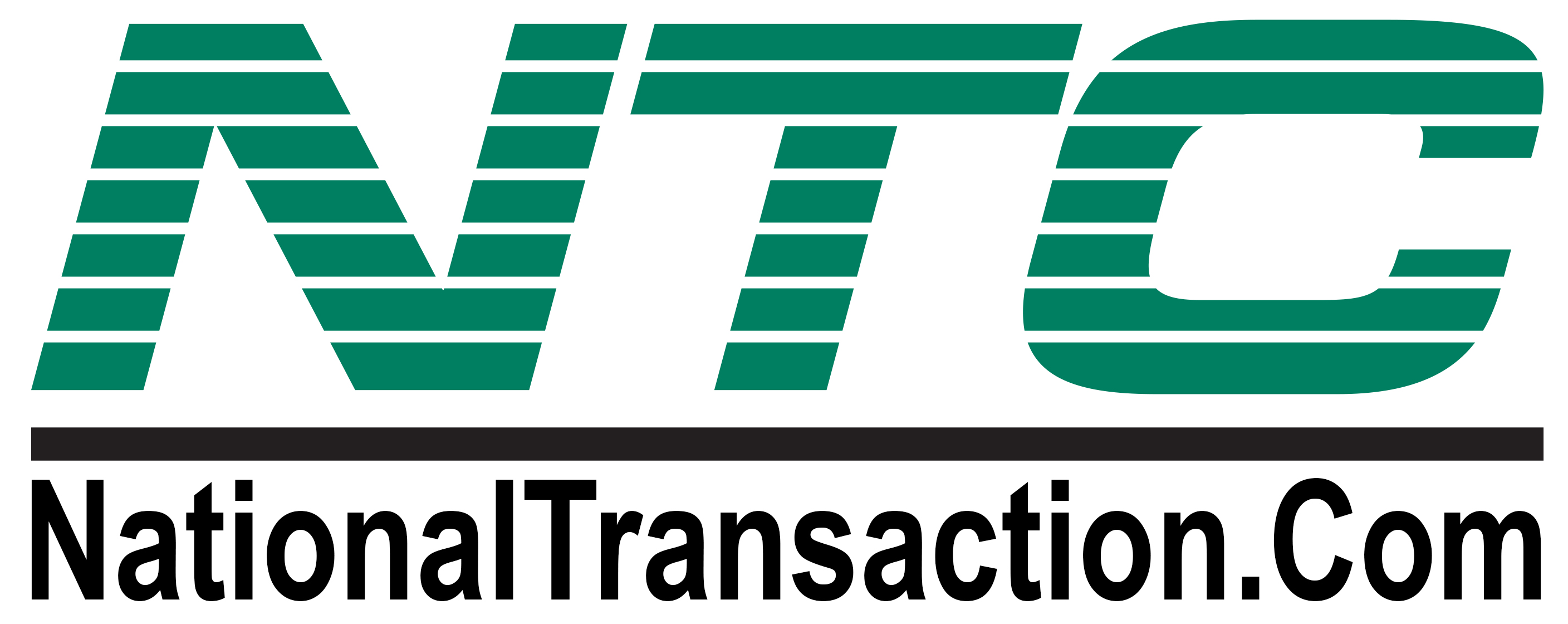
June 23rd, 2016 by Elma Jane
Merchant Aggregators, Merchants of Records and Payment Service Provider what’s the difference?
Payment Service Provider – is a company, which provides payment gateway and related services (like antifraud tools) to merchants. PSP is a representative of one or several acquiring banks. The merchant signs an agreement with the acquiring bank and PSP. The acquiring bank provides a merchant account and secures settlements for merchant’s transactions directly to the merchant’s bank account. Payment Service Provider secures delivery of the merchant’s transactions to the acquiring bank and some related services like fraud scrubbing and recurring transactions. The merchant has an own merchant account with this model.
Merchant Aggregator – is a company, which uses one merchant account to process transactions from many merchants. Merchants don’t have any agreements with an acquiring bank, but with the merchant aggregator. You get quick setup and get shut down quickly. Most aggregators are hard to get hold of, they don’t have human customer support. The problem with this model is, it’s not intended as a long-term, scalable solution to accepting payments and they can freeze your account or hold your money if anything unusual happens.
Merchants of Records – are a merchant, who use services of payment service provider (PSP) or merchant aggregators to accept payments on their websites for goods or services they sell. Merchant of record role requires an array of administrative responsibilities, such as managing a merchant account with a payment processor, paying associated credit card fees for the transactions, other responsibilities like complying with PCI DSS.
Posted in Best Practices for Merchants, Travel Agency Agents Tagged with: bank account, credit card, customer, merchant, payment gateway, payment processor, Payment Service Provider, PCI, transactions

May 27th, 2016 by Elma Jane
Refunds – transfers funds from your merchant account to the customer’s account.
Refunds are always associated with a transaction that has settled.
A settled transaction – is funds that have already transferred from the customer to the merchant. You can only refund a transaction with a Settling or Settled status.
The refunded transaction goes through the typical settlement process. As the refund settles, the funds are sent back to the customer’s bank account. It is normal for your customer to experience a delay because the customer’s bank may take a couple of days to deposit these funds.
Voids – will cancel the transfer of funds from the customer to the merchant and can be issued if the transaction is either Submitted for Settlement or Authorized. The original authorization should disappear from the customer’s statement within 24 to 48 hours.
Posted in Best Practices for Merchants Tagged with: account, bank, customer, funds, merchant, merchant account, refunds, transaction








